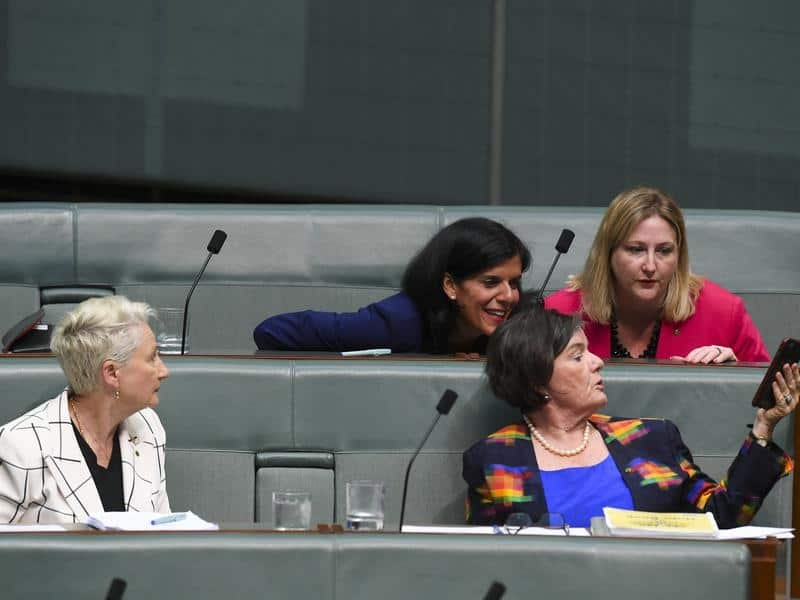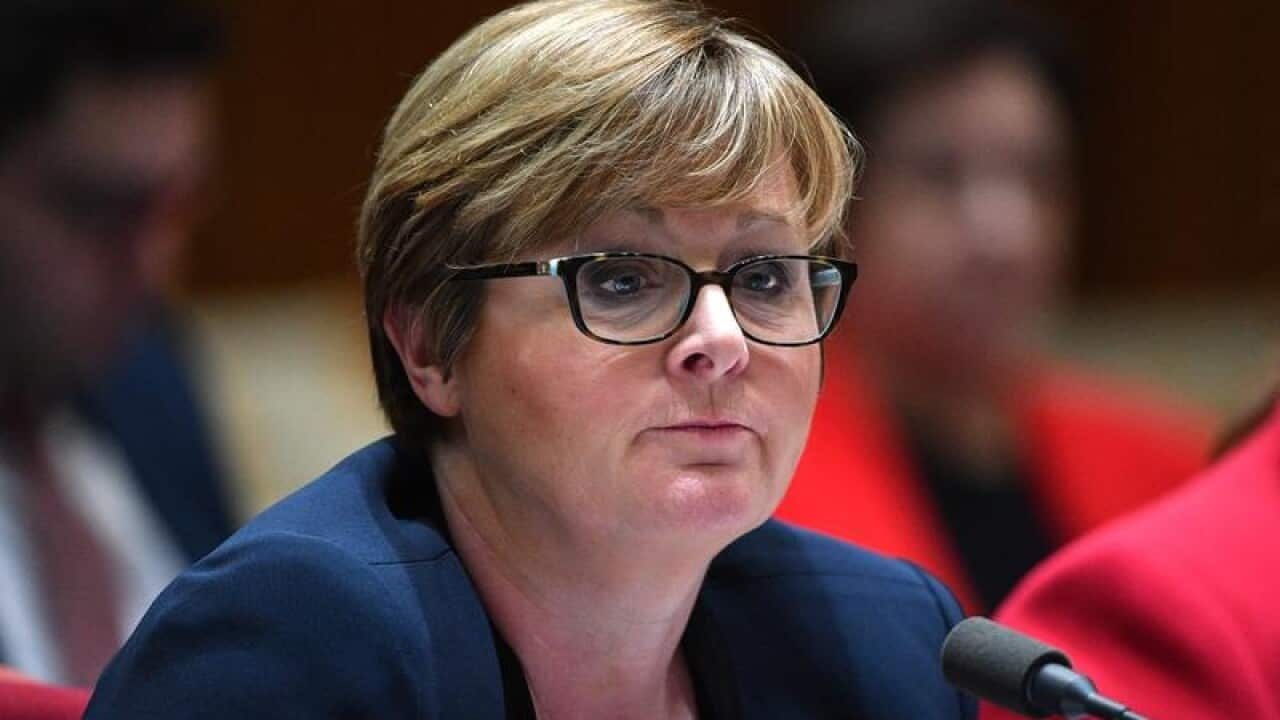The Morrison government will seek the support of the crossbench to push its controversial encryption laws through the parliament this week, despite a broad and unlikely alliance of industry, privacy and legal groups urging more time to consider changes.
The government is insisting on the bill passing before Thursday, when parliament will rise for the long Christmas break.
The domestic intelligence agency, ASIO, wants and has warned of a spike in terror threats that normally occurs over the holiday period. The complicated 180-page bill would give agencies the power to to expose encrypted messages between suspects, including through installing secret software on devices.
The complicated 180-page bill would give agencies the power to to expose encrypted messages between suspects, including through installing secret software on devices.

Prime Minister Scott Morrison has called on the crossbench to "pick and side" when it comes to pushing through the national security legislation. Source: AAP
On Monday, Attorney-General Christian Porter said it was time for parliamentarians to “choose a side” and commit to passing the laws this week.
“It is incumbent on every member of parliament – Liberal, National, Labor, crossbench – to actually choose a side, at the end of the day,” Mr Porter said.
“We are now at the end of the day. This legislation is coming into parliament and you can choose the side of the tech companies, who are a little bit sad they're going be modestly inconvenienced, or you can choose the side of our intelligence and law enforcement agencies, who say this is utterly critical to their endeavours to protect Australians from harm.”
setting up a major conflict between the two major parties on a national security matter for the first time in years. The parties usually resolve their difference on security matters through the cross-party Intelligence committee, which is expected to hand down a divided final report this week.
The parties usually resolve their difference on security matters through the cross-party Intelligence committee, which is expected to hand down a divided final report this week.

Attorney-General Christian Porter during the debate. Source: AAP
“This is a bill which, in its current form, is not fit to pass the parliament. It would make Australians less safe, it would compromise our security, and it’s not just Labor saying that,” shadow attorney-general Mark Dreyfus said.
“The Australian Industry Group, Australian defence exporters, tech companies, the Law Council, international experts, global corporations, are all saying that this bill, if passed in its current form, would make Australians less safe.”
Crossbench prospects
Assuming Labor votes no, the government will need the crossbenchers in both the House of Representatives and the Senate.
In the Senate, key balance-of-power senator Derryn Hinch said he was still considering his position.
“I came away from reading it to come to this press conference,” Senator Hinch told reporters at Parliament House around lunchtime on Monday. He said Labor had raised some legitimate points but he did not want to “throw away the baby with the bathwater” by waiting too long to pass the laws.
He said Labor had raised some legitimate points but he did not want to “throw away the baby with the bathwater” by waiting too long to pass the laws.

Senator Derryn Hinch. Source: AAP
In the Lower House, independent Kerryn Phelps said she too was “still investigating the details”.
But she said it was “better to get it right than to rush it though”.
‘Extremely broad and extremely dangerous’
Industry groups, tech companies and privacy groups have hastily organised themselves into an Alliance for a Safe and Secure Internet, and are urging the government to slow down with the bill.
It follows the main tech companies in Australia, including local telcos like Telstra but also multinationals like Apple, if the laws go ahead as currently drafted.
The new Alliance includes the Australian Industry Group, the professional organisation for IT professionals, the Human Rights Law Centre and a collection of human rights and privacy groups, including Amnesty.
“This bill is extremely broad and extremely dangerous,” Lizzie O’Shea, a spokesperson for the alliance and a member of Digital Rights Watch told SBS News.
“There is no one who the Coalition government can find to defend this bill except people who will be gaining powers from them,” she said, referring to the intelligence agencies themselves. “Almost every single person that came before the [Intelligence] committee highlighted just how dangerous this bill was, the severe implications for our digital security. To then see the Coalition come out in this way is frankly stunning.”
“Almost every single person that came before the [Intelligence] committee highlighted just how dangerous this bill was, the severe implications for our digital security. To then see the Coalition come out in this way is frankly stunning.”

The government is now reaching out to the crossbench, in an effort to pass the laws. Source: AAP
The group is concerned that “solutions”, often known as “exploits” in cybersecurity circles, developed by companies and agencies under the law could fall into the wrong hands.
Ms O’Shea referenced the global WannaCry cyberattack, which made use of a weakness in Microsoft products that the NSA, the main US agency that deals with intercepted communications, had already developed for its own hacking purposes.
The Law Council, which represents the legal profession, also called for calm and caution.
"It's not a good argument to simply hold the Sword of Damocles over the head of the Australian people," the group's president Morry Bailes said.
"A reasonable and proportionate balance needs to be struck so that we can stay safe, but also maintain our established rights and our established privacy. It is not unreasonable or unpatriotic to ask that the parliament pass laws that take both of those things into account," he said.
Earlier, Mr Porter said the Law Council had an "army of lawyers" and criticised the group for not supporting the laws.
"If you cannot come to a decision in that period of time, in an area where the need is as urgent as this, then that is insufficient for the purposes of the Australian people, who want to be protected," he said.
SBS News understands the bill will be brought to a debate in parliament on Tuesday or Wednesday this week.


